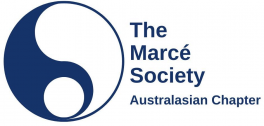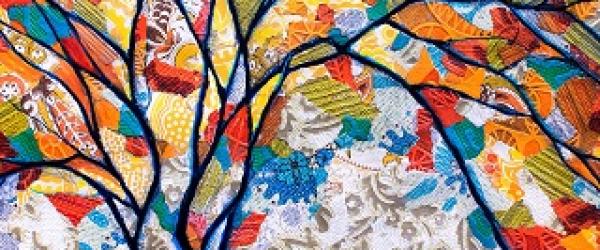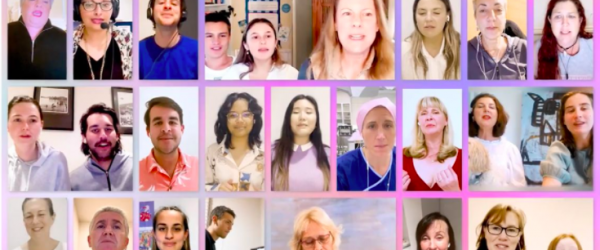Support groups - an invaluable resource
POSTNATAL DEPRESSION SUPPORT GROUPS
Cindy Wharton and Rachel Nelson
Maternal Mental Health, Waitemata Health, Auckland, New Zealand
This presentation covers three main areas:
- the development of group formal based work of Dawn Gruen
- the structure , format and process of the groups
- the ground rules of the group, how the group begins, how the group copes with new members, how the group evolves, and the members active involvement in choosing when they are ready to leave.
- an overview of the topics covered such as stress management, unrealistic expectations, sex, grief, anxiety, partners' information needs, relationships and information on postnatal depression
- a summary of group histories, group outcomes, and evaluations received from group members to illustrate positive results achieved by this approach.
PaNDa'S ROLE AS A SELF HELP GROUP IN VICTORIA
Lisa Fettling, PaNDa, Melbourne, VIC
This paper will outline the Post and Ante Natal Depression Association's aims, internal structure and the means by which it provides support and information. It will show how self help groups complement the role performed by health professionals in the management of women with postnatal depression.
MULTIPLE BIRTHS AND POSTNATAL DEPRESSION: WHERE'S THE MANUAL?
Ruth De Souza, S Dykes
Maternal Mental Health Services, Greenlane Hospital, Auckland, New Zealand
This paper describes the development of a monthly support group for the parents of multiples who have been experiencing postnatal depression. The group evolved in response to the needs of parents of multiples who were presenting to the Maternal Mental health Service in Auckland with emotional and mental health needs that were not being met elsewhere.
Research has demonstrated that support groups are effective in reducing or addressing factors such as shame and isolation, factors that appear to perpetuate PND, through education and support. Because of the difficulties of juggling the care of multiples and addressing the needs of the parents, an ongoing, open group was offered, giving both parents the opportunity of having support to address the unique stressors in their new roles.
The group focuses on the adjustment to parenthood of multiples. Studies have shown that mothers of first born twins suffer significantly more from PND and that precipitating factors are stress, fatigue and social isolation. In addition, partners often have to take time off work to assist, there is added financial strain, which can mean having to work more hours or cut down on luxuries. Fathers may also be expected to assist with domestic tasks and have decreased attention from their partners. The focus changes from an intrapersonal one to that of a family experiencing an adjustment. This process facilitates the exploration of the impact of PND on other family members. Participation in the group has reduced the isolation that parents of multiples experience, increasing their self esteem and confidence. Having a specific support group for parents of multiples acknowledges the unique stresses and joys of parenthood whilst also revealing the strengths and skills that group participants discovered. With the rate of multiple births likely to increase, as a result of women having children later in life and the advent of new technologies of fertility, this seems a timely opportunity to explore ways that parents of multiples can be supported.
POSTNATAL DEPRESSION - A CHANCE TO GROW
Lara Bishop, Ferny Hills, Brisbane, QLD
Personal Story and Symptoms: PND does not discriminate. It can affect any woman from any background and at anytime during pregnancy and after the birth of a child. My depression began during the last trimester of pregnancy. It was sudden and overwhelming. Symptoms I experienced included sleeplessness, severe anxiety and panic attacks, severely depressed mood, loss of interest in everything, a fear of social situations, and a fear of being alone. By far my most distressing symptom was the fear that I would harm my child. How could I feel these things when I had such a beautiful , prefect baby who relied on me so totally? Was I some kind of monster?
Our Treatment as a Family: I was treated in Melbourne almost immediately after the birth of my son. Luckily, nurses recognised what was happening and put me in touch with a psychiatrist. I could not admit that it was PND - it didn't exist in my mind. I'll be right, I thought, I don't need this help. Eventually it got so bad that I was admitted to a mother baby unit for 6 weeks when my baby was 18 months old. I talked, cried ( a lot), screamed, attended group therapies and implemented every strategy they told me to. I also undertook a Cognitive Behaviour Therapy course. Within six months I was almost back to myself, within nine I was well.
Husband/Wife Relationship: My husband was very supportive, we attended much needed couples counselling and now our communication is better than ever. We attended communication workshops, counselling, and spent a lot of time talking about how we felt to each other and friends. We survived.
Has anything good come from PND? I am stronger now. I was pushed to the limit. I wanted to give up so many times but I kept on going. I have learned the value of love in my life, of friendship, and of inner strength. We all possess it and it is only in times of severe personal hardship that we realise it is there.





